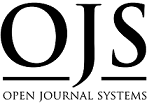IMPLEMENTATION OF CORPORATE CRIMINAL RESPONSIBILITY IN LAW ENFORCEMENT OF THE TRANSNATIONAL DIMENSION OF TRAFFICTING IN PERSONS
Sari
Teks Lengkap:
PDFReferensi
Andi Zainal Abidin, Asas-Asas Hukum Pidana Bagian Pertama, Alumni, Bandung,1987.
Bambang Sunggono, Metodologi Penelitian Hukum, PT RajaGrafindo, Jakarta, 2003.
Barda Nawawi Arief, Masalah Penegakan Hukum dan Kebijakan Hukum Pidana dalam Penanggulangan Kejahatan, Kencana Prenada Media Group, Jakarta, 2007.
Eva Achjani Zulfa, Keadilan Restoratif, Badan Penerbit Fakultas Hukum Universitas Indonesia, Jakarta, 2012.
I. S. Susanto, Kejahatan Korporasi, BP Universitas Diponegoro, Semarang, 1995.
Jimmy Joses Sembiring, Cara Menyelesaikan Sengketa Di Luar Pengadilan (Negosiasi, Mediasi, Konsilisiasi Dan Arbitrase),Transmedia Pustaka, Jakarta, 2011.
Konsideran huruf a Peraturan Mahkamah Agung Nomor 13 Tahun 2016 tentang Tata Cara Penanganan Perkara Tindak Pidana Oleh Korporasi.
Kristian, Hukum Pidana Korporasi: Kebijakan Integral (Integral Policy) Formulasi Pertanggungjawaban Pidana Korporasi di Indonesia, Nuansa Aulia, Bandung, 2014.
Kristian, Kebijakan Integral Formulasi Pertanggungjawaban Pidana Korporasi di
Indonesia, Nuansa Aulia, Bandung, 2014.
Mardjono Reksodiputro, Pertanggungjawaban Pidana Korporasi Dalam Tindak Pidana Korporasi, UNDIP Press, Semarang,1989.
Moeljanto, Asas-Asas Hukum Pidana, Edisi revisi, Renika Cipta, Jakarta, 2008.
Muladi dan Diah Sulistyani, Pertanggungjawaban Pidana Korporasi (Corporate Criminal Responsibility), Bandung, PT Alumni, Edisi Kedua Cetakan Pertama, 2015.
Nana Riana, “Pertanggungjawaban Pidana Korporasi Dalam Tindak Pidana Perdagangan Orangâ€, Tesis Magister Hukum Universitas Airlangga, Surabaya, 2016.
Nyoman Sarikat Putra Jaya, Hukum Pidana di Bidang Ekonomi, Cetakan Ketiga, Badan Penerbit Universitas Diponegoro, Semarang, 2015.
P.A.F Lamintang, Dasar-Dasar Hukum Pidana Di Indonesia, Cetakan I, PT. Sinar Grafika, Jakarta, 2014.
Penjelasan atas UU No. 21 Tahun 2007 tentang PTPPO
Riduan Syahran, Rangkuman Inti Sari Ilmu, PT Citra Aditya Bakti, Bandung, 2008.
Satipto Rahardjo, Masalah Penegakan Hukum. Sinar Baru, Bandung, tt.
Tony Marshall, Restorative Justice: An Overview, Home Office Research Development and Statistic Directorate, London, 1999.
DOI: http://dx.doi.org/10.33603/hermeneutika.v6i2.7461
Refbacks
- Saat ini tidak ada refbacks.









